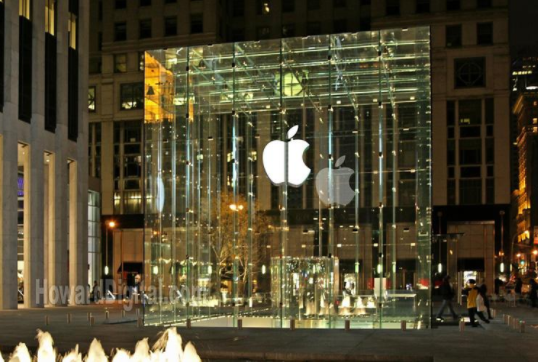|
Apple is getting harsher on its cut of the tipping on its platform. On June 11th, Apple’s official site for developers updated its App Store Review Guidelines, stating that: “If you want to unlock features or functionality within your app, (by way of example: subions, in-game currencies, game levels, access to premium content, or unlocking a full version), you must use in-app purchase. Apps may use in-app purchase currencies to enable customers to “tip” digital content providers in the app. Apps may not include buttons, external links, or other calls to action that direct customers to purchasing mechanisms other than IAP.” “Now, tips will be considered in-app purchases, just like buying games, music and videos, entitling Apple to a 30% cut.” Content providers rely on the contents they make to gain income, while content users tip the providers accordingly. This logic is sound. But there will always be people thinking that your contents are presented to the audience by my platform, and therefore it’s reasonable for me to have a cut of the money. “Conservative; pretentious; creating obstacles for the industry…” netizens found many words to describe Apple’s notorious new move, especially it has become mainstream for users in China to tip the content providers they like. On Chinese platforms such as WeChat, INKE, TouTiao, and Zhihu etc., cash from users' tips has become a main source of income for many content providers including writers and streamers. Some platforms are already having a cut of the cake, and now Apple is trying to have a cut too. Faced with an untouchable giant like Apple, the easiest way is just take a step back and make a compromise. For instance, Zhihu’s iOS3.5.3 update states that tipping mechanism of the special column will be integrated into IAP (In-App Purchase) mechanism, and that Apple will draw a 32% cut as service fee while users will enjoy 68% of the tips. However, some companies disapprove Apple’s idea, and have directly canceled the tip function. On April 9th, in response to Apple’s new rules for tipping, WeChat stated that the platform would remove the tip function on WeChat. WeChat announced that the 3.1.1 term update on June 13th 2016 by Apple set stricter rules, forbidding non-IAP, redirecting links etc. on apps. To compensate the loss caused to content providers, WeChat stated that users could use QR code to transfer money to content providers. However, WeChat does not endorse such behavior. To put it into perspective, WeChat account operators can put up their account’s QR code in their post, through which users could tip them. They can set up fixed amount of non-fixed amount QR code. Apple also made a quick response to WeChat, a gigantic platform boasting 800 million users, believing that WeChat could have provided IAP for account operators. “WeChat could choose to provide IAP for users to tip the WeChat official account operators they like just as we provide this method to all developers. WeChat only needs to develop its features based on the IAP mechanism.” On that, Smartisan’s CEO Luo Yonghao commented: “Tips are the rewards from the users, through which users show their appreciation to the content providers they like. It’s not like apps are selling things officially.”Luo believed that Apple had the concept all wrong. On Zhihu, the Chinese Quora, a user also raised the question: “What to think of Apple’s new rule of getting a 32% cut from the tips on WeChat and Zhihu?” The following is part of the two most agreed answers: User Direction believes that tipping is a way to reward a service providers in the service industry, and that Apple as an American company should be fully aware of that. Defining tips as purchase actions is unreasonable, Direction writes. As a business giant, Apple hasn’t defined what is give and what is purchase. A closed system is not a closed kingdom. It’s apparent that most netizens agree that Apple is relying on its closed system to exploit users for its own gain. In another answer, user Mendel tried to make sense of the origin of this charging mechanism: Nintendo’s third president Hiroshi Yamauchi invented this mechanism in the 80s. Hardware makers manufacture and promote their hardware, creating a closed ecosystem. Content providers and service providers would need to give Nintendo a cut as royalty if they want to put their products on the hardware. This business model, in nature, is about dominance. Companies that dominate channels possess the decision-making power. Most platforms would choose to make a compromise as uncertainties and income decrease would occur if chose not to cooperate. These platforms are just like sheep, and the giants could always choose to exploit them since they don’t have much power to fight back. And content providers have even less power. Let’s look at Apple itself. Recently, market survey company Strategy Analytics released a report, which shows that Apple accounted for 83% of the revenue in the first quarter this year, while the other 17% is enjoyed by other phone makers. (责任编辑:本港台直播) |
